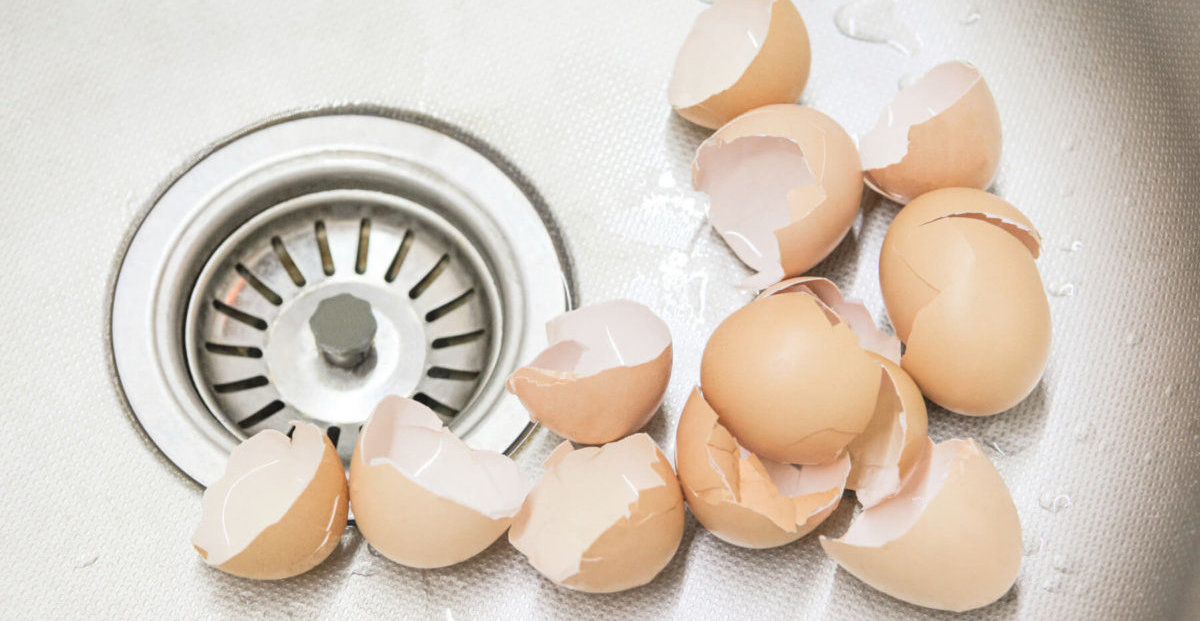10 Items That Shouldn’t Go Down the Drain

January 2020
So you cooked dinner, tossed the scraps down the kitchen sink, and let the garbage disposal do its thing. You gave an old bookcase a fresh coat of paint and rinsed the paintbrush in your bathroom sink. Or maybe you emptied kitty litter into the toilet and flushed it. We’ve all done things like this without giving it a second thought, but did you know that items like these can clog up the pipes in your apartment and leak into and contaminate our waterways?
Here’s a list of ten items to avoid putting down the drain, along with some eco-friendly tips and suggestions for safe disposal. Feel free to print out this list, add to it, and put it up on the fridge as a reminder. Together we can help keep our community clean and safe for all.
Coffee Grounds
While many foods can be put down the garbage disposal, coffee grounds pose a problem. They tend to clump up in water and create a build-up in your pipes. The best way to dispose of used grounds is either in a trash can or in a compost pile to be used as fertilizer for plants.
Medication
If you are getting rid of unused or expired pills, the FDA recommends discarding them by mixing them with an unappealing substance (dirt, coffee grounds, etc.) in a sealed plastic bag and putting that in a trash can, versus flushing them down the toilet where they end up leaking chemicals into our waterways.
Household Cleaners
Many household cleaners contain chemicals like bleach that mix with the water and leak into the waterways and cause erosion in your pipes. Proper disposal instructions should be listed on the label and many containers can be recycled after use. Many all-natural cleaning products, however, are designed to safely go down the drain.
Pasta and Rice
Foods like pasta and rice grow in size as they absorb water, so if you put them in a wet drain, they can become enlarged and block the passageway. Scraps should go directly in the garbage.
Eggshells
While your apartment’s garbage disposal can handle eggshells, your pipes cannot. The shells break up into small, sticky pieces that attach to the inside of your pipes. Shells can be tossed into the trash or added to a compost pile.
Kitty Litter
Although some brands of cat litter claim to be flushable, like pasta and rice, it grows in size as it absorbs water. Toxins and feces are also released into the water when flushing litter down the toilet. Look for more “green” litter, made of recycled elements, as a safer way to dispose of it. Litter can be tossed in the trash.
Paint
Since paint contains chemicals, fumes, and is flammable, leftover paint shouldn’t be poured down the drain. Excess brush paint can be removed by scaping it against the edge of the can and large amounts of paint can be taken care of by a household hazardous waste facility in the area.
Bones
Bones, especially from poultry, beef, pork, and lamb are not safe to toss down your sick. Thick bones are rough on garbage disposal blades and are too dense for dispels to properly break them down. Scrape off used plates into the trash or dispose of in a compost pile.
Grease, Fat, and Oils
These types of liquids, whether hot or cold, will dry and easily cling to the sides of the pipes if poured down the kitchen sink. Let grease, fat, and oils cool first and then spoon the solid leftovers into a container that can be thrown away. You can also reuse grease and fat — after cooking, let it cool and strain the room temperature liquid into a mason jar to use for another recipe. You can store the mason jar in the fridge until you need it.
Fruit Pits
As with bones, garbage disposal blades are not sharp enough to grind these. Fruit pits can be thrown in the garbage or composted.
